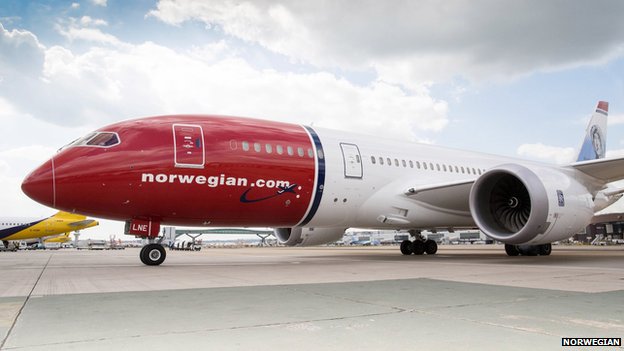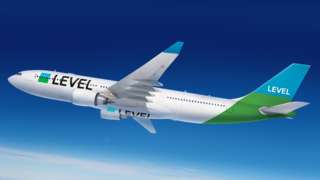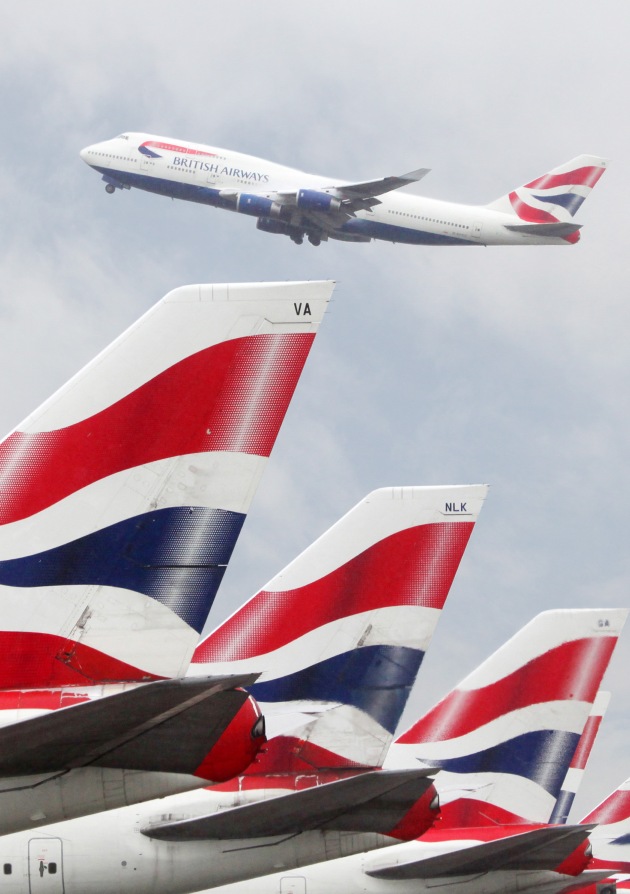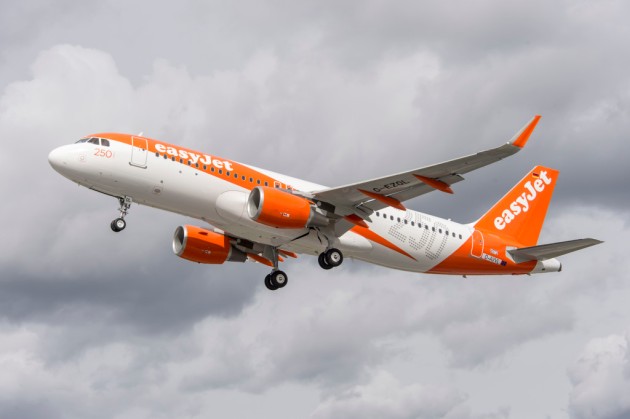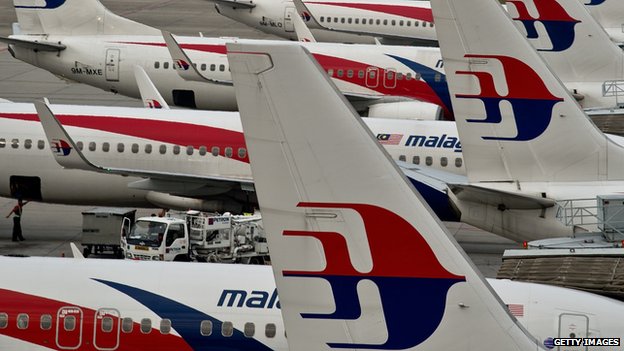March 7, 2016
by David Leo
IT’s been a long time coming, the optimism and good news that the industry badly misses as more airlines report better, even record, performances as fuel prices show no certainty of bottoming out. From Chicago to London, Singapore and Sydney, the mood is celebratory.
American carriers were the first to celebrate. The US big three– American Airlines, United Airlines and Delta Air Lines – all reported record recovery last year, and are reintroducing snacks on domestic services (instead of lowering the fuel surcharge) as a way of giving back to their customers. (As the price of crude oil plummets, fuel surcharge holds sway, Jan 23 2016)
This article takes a look at four major airlines in three other different regions (Australia, Europe and Asia) that recently posted their report cards, and see how they measure up to the mood.
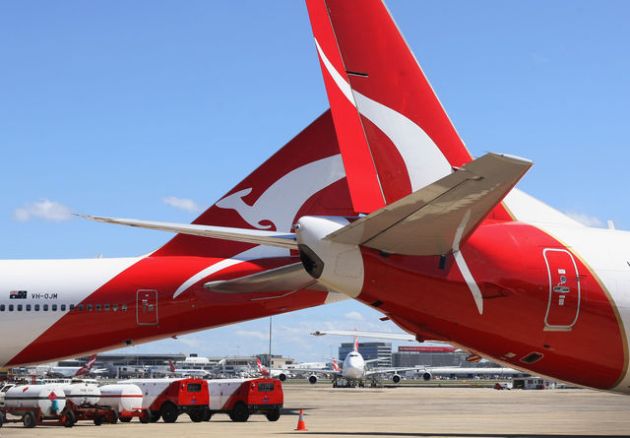
Courtesy Bloomberg
Qantas
The good run continues with Australian flag carrier Qantas’ record performance for the first half of its current financial year (Jun-Dec 2015). The airline reported an underlying profit before tax of A$921 million (US$685 million), which is A$554 million more than last year’s first half. Revenue was up 5 per cent. Chief executive officer Alan Joyce announced that every part of the Qantas Group contributed strongly to the result, with record profits reported by Qantas Domestic and the Jetstar Group.
Qantas Domestic reported earnings of A$387 million, compared to A$227 million last year, maintaining a strong market share of 80 per cent. The Jetstar Group’s earnings were A$262 million, compared to A$81 million last year. Revenue for the Australian market went up 10 per cent, and for the first time, Jetstar Japan contributed positively to the profit of the Asian network since its start-up in 2012.
Qantas International which used to be the bleeding arm of the Qantas Group reported earnings of A$279 million, compared to $59 million last year. This was its best performance since before the global financial crisis. The airline has benefitted from the weak Australian dollar which has helped boost inbound tourism for Australia. Qantas’ cornerstone alliance partnership with Emirates, American Airlines and China Eastern has strategically strengthened its global network, overcoming an apparent geographical disadvantage of its home base in a far corner of the world.
All this, Mr Joyce would be the first to tell anyone, is not a matter of luck or necessarily a given in today’s more favourable economic climate. He said: “This record result reflects a stronger, leaner, more agile Qantas. Without a focus on revenue, costs and balance sheet strength, today’s result would not have been possible. Both globally and domestically, the aviation industry is intensely competitive. That’s why it’s so important that we maintain our cost discipline, invest to grow revenue, and continue innovating with new ventures and technology.”
Give credit where it’s due. Sceptics may finally admit that Mr Joyce’s “transformation program” is not only bearing fruit but producing a good crop and reshaping Qantas into a more agile and innovative business. “Our transformation program has allowed us to save significant costs,” said Mr Joyce. “It’s never been a simple cost cutting agenda.”
Qantas expects to increase domestic capacity by 2 per cent, international by 9 per cent and Jetstar International by 12 per cent in the second half, averaging 5 per cent for the full year for the Group.
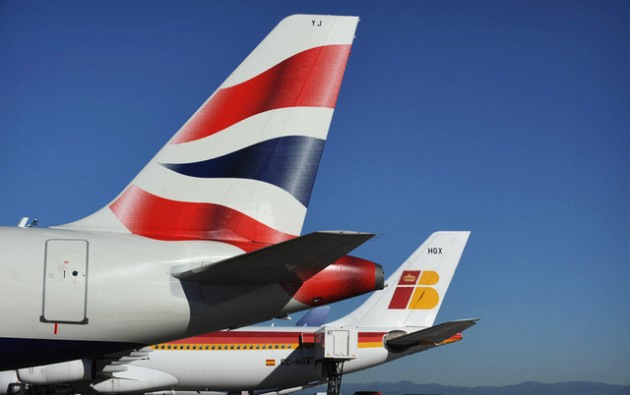
Courtesy Bloomberg
International Airlines Group
At the other end of the Kangaroo route is the unmatched success of the International Airlines Group (IAG) of which British Airways is a partner along with Iberia, Vueling and, more recently, Aer Lingus. IAG’s profits increased by almost 65 per cent to €1.8bn (US$1.98 billion) in 2015, which IAG chief Willie Walsh said had “undoubtedly been a good year”. The Group carried 88.3 million passengers last year, an increase of 14 per cent, overtaking Lufthansa to become second only to Air France-KLM in Europe.
In very much the same way that Mr Joyce was able to turn round the loss-making international division of Qantas, Mr Walsh could pride himself as the man who steered Iberia into profitability following its merger with BA in 2011. The Spanish carrier underwent a painful restructuring but it has paid off. . Unlike Qantas which prefers commercial alliances, IAG adopts a more aggressive strategy of acquisitions. The consortium of BA, Iberia and Aer Lingus stands the Group in good stead to grow trans-Atlantic traffic which forms the largest part of its business.
IAG expects similar growth next year, targeting an operating profit of €3.2bn
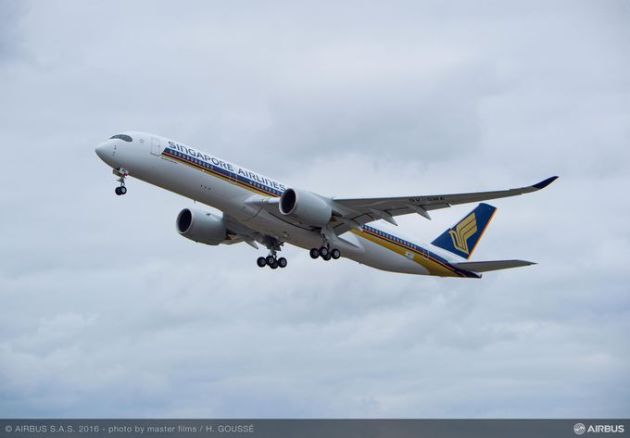
Courtesy Airbus
Singapore Airlines
In Asia, Singapore Airlines (SIA) Group reported a third quarter (Oct-Dec 2015) profit of S$275 million (US$200 million), 35 per cent higher than that of last year’s third quarter. However Group revenue declined by 4 per cent to S3.9 billion because of lower passenger yields and the continuing lacklustre performance of its cargo operations. Parent airline SIA faces stiff competition from Middle East carriers, and its subsidiaries SilkAir, Scoot and Tigerair are not spared the rivalry from regional budget carriers. Still it is good news that falling oil prices had resulted in a reduction of the fuel costs by S$354 million, a drop of more than 40 per cent.
Characteristically diffident and not as confident as either Qantas or BA, SIA said it expects travel demand to remain volatile, citing the increased competition and the pressure that it will continue to exert on yields and loads. But all three airline groups have experienced increased loads, driven by discounted fares as a result of of intense competition and made possible by the lower fuel costs. According to International Air Transport Association (IATA), breakeven load factors are highest in Europe because of low yields from the open competition and high regulatory costs, yet the region is achieving the second highest load factor after North America and generating solid growth.
It is going to be a rosier 2016. IATA forecast air travel to grow 6.9 per cent, the best since 2010 and well above the 5.5 per cent of the past 20 years. Demand is fueled by stronger economic growth and made attractive by lower fares. It is unlikely that the oil price will rise and airlines may even expect smaller fuel bills, making up 20 per cent of an airline’s total operating costs compared to what it used to be at 40 per cent. This will be further enhanced by the acquisition of new aircraft that are more fuel efficient.
In this connection, SIA has something to crow about as it took delivery last week of the first of 63 Airbus A350 firm orders after a long wait of 10 years. The first tranche of ten aircraft which it hopes to take complete delivery by the end of the year have a seat configuration of 42 business, 24 premium economy and 187 economy. An ultra-long range version of the model will be used to resume SIA’s non-stop services from Singapore to Los Angeles and New York in 2017. The modified A350 is said to be more fuel efficient than the A340 previously used. It will be configured premium-bias.
SIA chief executive officer Goh Choon Phong said: “The A350 will be a game-changer for us, allowing for flights to more long-haul destinations on a non-stop basis, which will help us boost our network competitiveness and further develop the important Singapore hub.”
Opinions are divided as to whether SIA has moved a little too slowly and as a result is playing catch up when once it used to lead the field. By all indications of the good times finally rolling back for the industry, it is not too late to leapfrog the competition to make up for lost time. SIA is banking on the rejuvenation of the demand for premium travel, the product it has always been reputed for.
The IATA forecast points to weak markets in South America and Africa – two regions that are of little interest to SIA – but continuing robust growth for North America which has been a key market for SIA since it commenced operations thereBut the competition will be tough, particularly from Middle East carriers tapping traffic in Asia-Pacific and redirecting it through their Gulf hubs. Already United Airlines has announced its launch of a non-stop flight between San Francisco and Singapore in June this year, ahead of SIA. (United Airliens steals a march on Singapore Airlines, Feb 15 2016)
According to IATA, consumers will see a substantial increase in the value they derive from air transport this year. Indeed, air travellers will benefit from the optimism as airlines become more inclined to improve their product, and the increased competition will likely see the airlines introducing more creature comforts beyond the snacks and peanuts. Qantas for one is upgrading its airport lounge at London Heathrow as part of a program to create a flagship global lounge at important destinations started three years ago. Hong Kong, Singapore and Los Angeles are already enjoying the new facility. Qantas is also developing across its domestic network an industry-leading wi-fi service that has the ability to deliver the same speeds in flight that people expect on the ground.
Mr Joyce said: “Our record performance is the platform to keep investing in the experiences that matter to our customers and take Qantas’ service to new levels.”
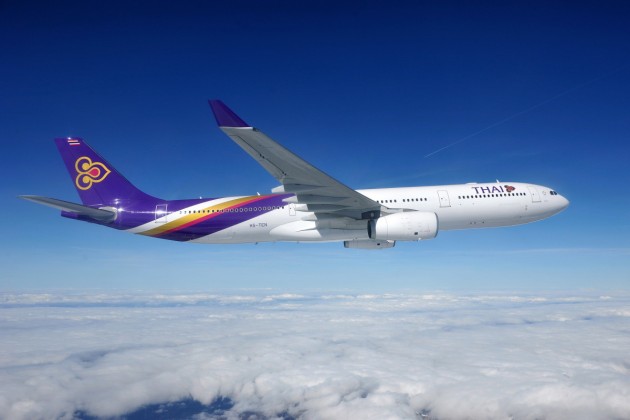
Courtesy Airbus
Thai Airways International
Positive signs of the times are best presented by the performance of Thai Airways which posted a quarterly profit of 5.1 billion (US$141.7 million) baht ending Dec 31, 2015 reversing a loss-making trend. This compared to a 6.4 billion baht a year ago, and softened the full year’s loss to 13.05 billion baht, 16 per cent lower than 15.57 billion baht last year, partly attributed to a decrease in fuel costs of 20 per cent. The airline introduced a program “to stop the bleeding” last year aimed at introducing cost-saving measures, cutting unprofitable routes and down-sizing the fleet.
Plagued by political problems at home and safety concerns based on the findings of the International Civil Aviation Organization (ICAO), Thai Airways has been struggling to stay afloat amidst increased competition from regional carriers. It is to be expected that stronger-muscled airlines such as Qantas, British Airways and SIA are likely to rise faster with improved economic conditions, but when things are beginning to look up for the more troubled carriers while noting that in good times as in bad the fortunes of various airlines can be widely diverse, the industry can at last be a little more confidently optimistic.

 Qatar Airways now emerged as the second prospective white knight come to the rescue of MAS following a meeting between Dr Mahatir and Qatar Emir Sheikh Tamin Hamad al-Thani. Both Qatar and MAS belong to the OneWorld alliance. At least that’s common ground for a start, unless geopolitical problems Qatar faces with its neighbours that lead to its isolation in the region stand in the way.
Qatar Airways now emerged as the second prospective white knight come to the rescue of MAS following a meeting between Dr Mahatir and Qatar Emir Sheikh Tamin Hamad al-Thani. Both Qatar and MAS belong to the OneWorld alliance. At least that’s common ground for a start, unless geopolitical problems Qatar faces with its neighbours that lead to its isolation in the region stand in the way. 
